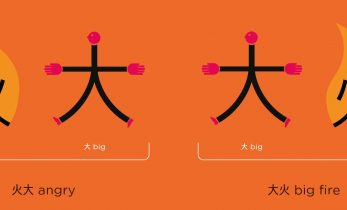Greater than 2 minutes, my friend!
My Mission As a Translator A Review of the Sixth Latin American Translation and Interpreting Congress
Last week the Sixth Latin American Translation and Interpreting Congress was held in Buenos Aires. Personally, it was a fascinating experience for me because it is the first Congress I’ve attended as a professional translator and I was able to take more advantage of it than the last time I attended in 2010, when I was still a Translation student.
Firstly, I could catch up on the latest news about my area of expertise, and also, learn about new areas of specialty, such as transcreation, which I would really like to get to know better. Also, I consolidated my legal knowledge, since the Civil Code in Argentina changed several months ago, and I brought some productivity tips that I am starting to put into practice.
It’s funny how we come back from these kinds of meetings full of ideas, energy and enthusiasm; we are proud of being language experts and having an international career. Then we realize that we actually live in a small town in the middle of nowhere and surrounded by people who consider translation and interpreting as a same thing, and who believe we are language nazis!
Anyway, this last topic is the one I want to deal with in this post. I had the pleasure of hearing the presentations of all the Spanish lecturers who were invited to the Congress, and they all came to the same conclusion: we must defend our language. It may be obvious, you may say, “Come on, you’re talking to a translator!” But sometimes we become lazy translators.
What do I mean? We are so into our language combinations and our fields of study that we believe we will sound more professional if we speak a particular word in other language although we know it has an equivalent. And when we read tweets and posts including words in other languages, we think, “Wow! That person is so bicultural!” Well, that person is a translator, what would you expect?
I believe it’s fine that we can all communicate with a single language. I am so glad I can speak to a Russian translator in English because it wouldn’t be possible in other way. The problem is when we start mixing the grammar of different languages, for instance syntax, which must be kept as the invariable grammar component according to the Argentinean Linguist Alicia María Zorrilla.
On the other side, her Spanish colleagues Joaquin Müller-Thyssen and Antonio Martin highlighted the importance of preserving every aspect of grammar. Journalists, translators and any person working with languages should apply the appropriate grammar rules to create new words or adapt foreign words to the language they speak.
Finally, and in relation to technical translation, you may have been taught in your translation course to ALWAYS keep naturalness. However, Sworn Translator and Lawyer Ricardo Chiesa spoke about the importance of the translator’s presence because it is preferable to explain, expand or add a footnote rather than using apparent equivalences that end up spoiling the translation.
Therefore, our mission as translators is to protect our language and the other ones we work with, as the closing lecture of the Sixth Latin American Translation and Interpreting Congress was about. As extreme as it may sound, if we allow ourselves to be conquered, then the World will speak only one language, which won’t reflect the reality of each culture, and in the end, our job won’t be needed any more.
Let’s make our work visible and let’s defend our mother tongue!
Picture: thenextweb.com




